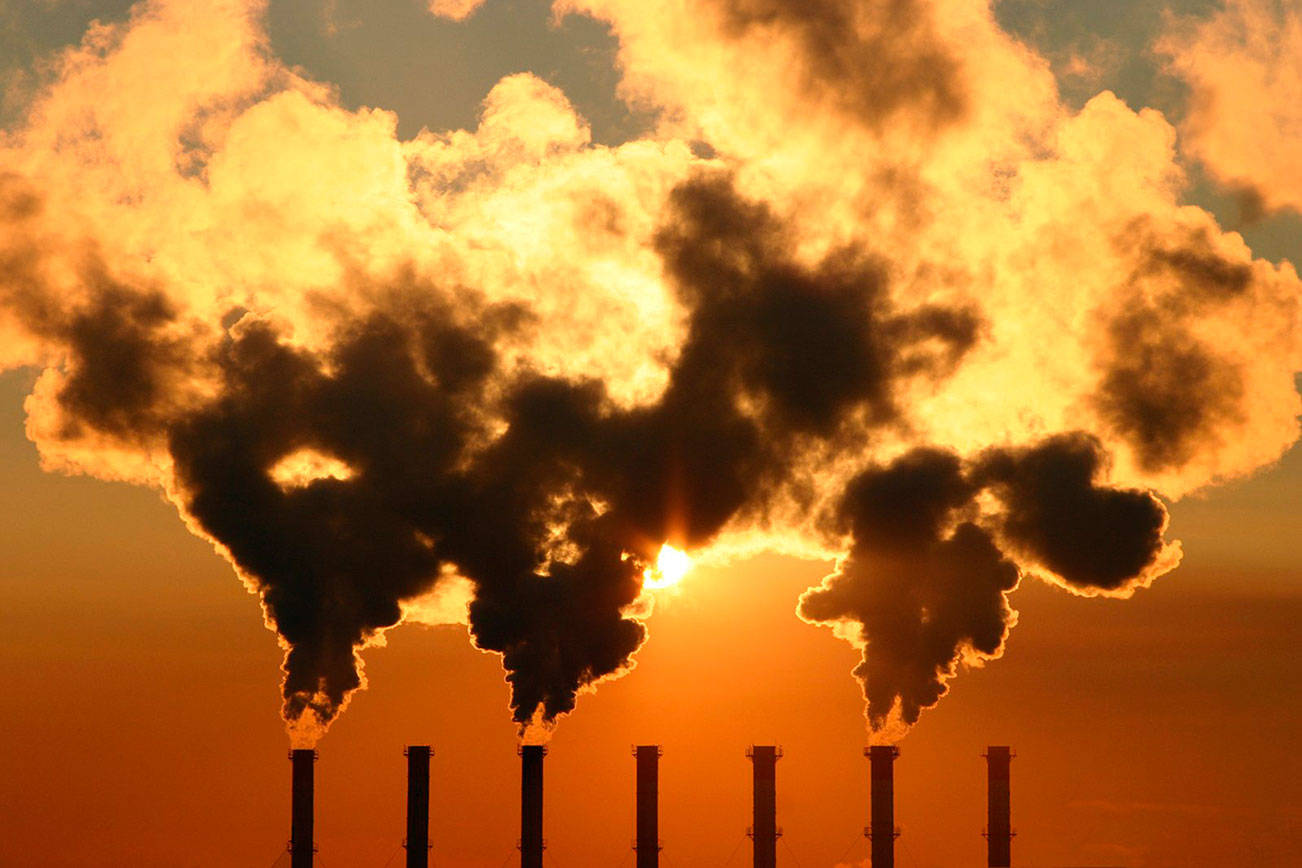In Olympia, Gov. Jay Inslee is pushing lawmakers to enact a new tax on carbon gas emissions before the legislature adjourns on March 8.
Inslee wants Democrats, who now control the Legislature, to approve a $20 metric ton levy. He says it is necessary to combat the effects of climate change and would start in 2019. There would be no corresponding tax offsets as provided in British Columbia and under I-732 which is the ballot measure Washington voters rejected in 2016. Nor is there a cap on future tax increases.
The additional money would go to pay for projects that reduce greenhouse gases, manage stormwater and reduce wildfire risks. Unlike B.C.’s scheme, Inslee’s plan includes exemptions for aviation petrol and fossil fuels used in agriculture.
The governor’s office reported the tax increases on consumers would range from 4 to 5 percent for electricity, 9 to 11 percent for natural gas, and 6 to 9 percent on gasoline.
“Over four years, the tax would generate $3.3 billion. Averaged across the state’s 2.7 million households, that’s about $1,200,” Seattle Times columnist Brier Dudley wrote in late December.
Dudley examined B.C.’s carbon levy which was enacted in 2008. He found it is failing to reduce carbon pollution as promised. “Emissions from driving are rising faster than population growth in B.C., despite a carbon tax higher than Inslee’s proposal.”
Recent data says greenhouse discharges increased 2.3 percent from 2013 to 2015. That includes a 7.2 percent increase in transportation emissions, the main focus of the B.C. and Washington plans.
B.C. isn’t likely to meet its 2020 carbon-reduction goals. On its current trajectory, the province will miss its target of an 80 percent reduction by 2050.
If the carbon tax was the only costly climate-oriented proposal in Olympia this year, that would be one thing. But simultaneously, other legislators are pushing a Low Carbon Fuel Standard.
If lawmakers approve both taxes, Washington families could be facing 35 to 45 cents more per gallon at the pump – on top of the 68 cents we already pay in federal and state gas taxes.
Then there is the tax cap issue. Without a cap, B.C.’s rate went from an initial $10 per ton (Canadian) to $30 by 2012.
British Columbia polling shows citizen and business support for the carbon tax is increasing. Even though gas was about 20 cents a gallon higher in 2016, the selling point was the tax offsets.
Carole Taylor, the provincial minister of finance when the legislation was approved, told the New York Times the parliament “provided critical political cover by ensuring every single carbon tax dollar would be returned to families and businesses through a variety of breaks.”
The province’s corporate income tax was cut from 12 percent to 10 and personal rates dropped. All total, the B.C. government returned $1.7 billion (Canadian) to businesses and families in 2016. The problem is only $1.2 billion was collected from the carbon tax.
Even though Canadian tax advocates insist it works, they’re seeking an overhaul and rate increases in hopes of meeting future climate and revenue goals.
Before our state lawmakers pass a tax proposal of this magnitude, they need to look at the progress our state already is making on reducing greenhouse gases and ask if it is needed.
While Washington’s population has increased 43 percent since 1990 and the economy has grown by 260 percent, carbon emissions are down by 18 percent, according to EPA.
The key question is Washington’s carbon tax simply an added way to fund state government. If it is, lawmakers need to make to their case to voters at election time.
Don C. Brunell is a business analyst, writer and columnist. He recently retired as president of the Association of Washington Business, the state’s oldest and largest business organization, and now lives in Vancouver. He can be contacted at theBrunells@msn.com.
Talk to us
Please share your story tips by emailing editor@kentreporter.com.
To share your opinion for publication, submit a letter through our website https://www.kentreporter.com/submit-letter/. Include your name, address and daytime phone number. (We’ll only publish your name and hometown.) Please keep letters to 300 words or less.

